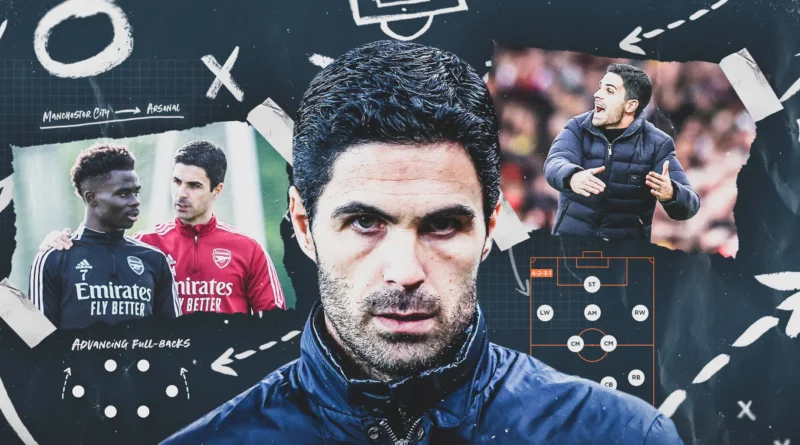Arteta’s Tactical Blueprint: Can His Philosophy Work at Arsenal?
When Enzo Maresca was appointed Chelsea’s head coach, many questioned if the former Leicester boss—despite winning the Championship—could handle the Premier League spotlight. Yet his early impact offers plenty to analyze, especially how his system has shaped Chelsea’s identity.
Maresca’s Core Philosophy
Maresca, a Pep Guardiola disciple, thrives on positional play, dominance in possession, and structured build-ups. At Leicester, his team averaged nearly 60% possession, while Chelsea have shown similar control in pre-season and European matches.
Chelsea’s formation often morphs during games. They begin in a traditional 4-3-3 or 4-2-3-1 but evolve in possession into a 3-2-5, with a full-back (usually Cucurella or Gusto) inverting to midfield, pushing central midfielders forward. This mirrors Guardiola’s Manchester City but with Chelsea’s own pace and width.
Defensive Fragility vs Midfield Strength
One key concern is Chelsea’s tendency to concede goals despite controlling games. The midfield pairing of Moisés Caicedo and Enzo Fernández is technically excellent but has at times lacked defensive cover when caught high. New addition Essugo could provide balance if given consistent minutes.
Maresca’s system requires defenders comfortable on the ball, and Levi Colwill and Badiashile have shown promise. However, mistakes from Disasi and some inconsistency from wing-backs have made the team vulnerable on the counter.
Palmer’s Role in the Engine
Cole Palmer has been a revelation. His intelligence, calmness on the ball, and ability to exploit pockets of space make him the prototype “free 8” or false winger. He’s effectively Chelsea’s playmaking hub, much like Bernardo Silva at City.
Attacking Issues and Progress
Despite fluid build-up, Chelsea have often struggled to convert dominance into goals. Jackson has shown improvement but remains inconsistent. The signing of Liam Delap suggests a more physical Plan B, which Maresca didn’t have at Leicester.
Mudryk, Madueke, and Nkunku offer directness, but their decision-making still varies. The team lacks a natural goal poacher, and this could limit their top-four ambitions unless Jackson or Delap fully step up.
Conclusion
Maresca’s system is promising and tactically sound, but its success depends on two key factors:
-
Defensive discipline during transitions.
-
More clinical finishing from forwards.
It’s clear Chelsea have a tactical identity under Maresca, but consistency and squad discipline will determine if the project reaches its potential.


